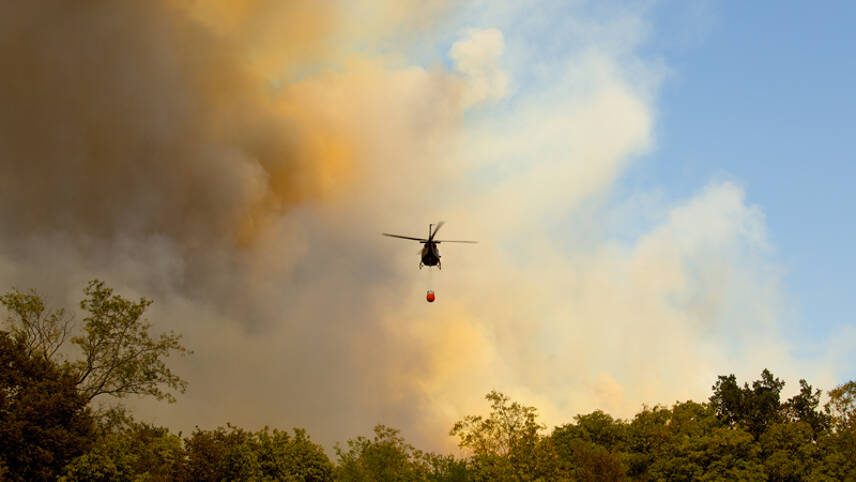Register for free and continue reading
Join our growing army of changemakers and get unlimited access to our premium content

Pictured: Forest fires this July in Karst, Slovenia.
A study published on Wednesday (17 August) by researchers at the University of Maryland revealed that forest fires burned a record level of tree cover in 2021. Using satellite imagery, the team calculated that 2021 saw 9.3 million hectares of tree cover affected. This is compared with around six million hectares in 2001.
The five most-affected countries during the 2001-2021 period were found to be Russia, Canada, the US (particularly the west coast), Brazil and Australia.
Russia came first by a long run, losing an average of 2.51 million hectares of forest each year compared with Canada’s average of 1.27 million hectares. Russia’s level of tree loss to fires increased by 31% between 2020 and 2021
Only fires resulting in “substantial” tree canopy loss were included in the study, and instances where trees were cut down and later burned were excluded.
Global Forest Watch states that 9.3 million hectares of tree cover lost in 2021 represented more than one-third of all tree cover loss globally that year. It is also warning that deforestation led by industries such as agriculture and forest products is making regions more vulnerable to fires, as this practice leads to drier vegetation and soils.
The level of forest cover lost in fires may well increase year-on-year for 2022, with little sign of deforestation rates slowing and with several nations reporting an increase in forest fire damage amid high temperatures and low rainfall levels. The EU’s satellite monitoring service has stated this month that western Europe has seen record fire activity so far in 2022, with widespread forest loss recorded in Greece, France, Spain and Portugal. Deadly fires are also happening in Algeria this week, and Morocco.
Global Forest Watch has stated that climate change is a “major driver” in increased fire activity, as warming global temperature averages and changing weather patterns serve to make heatwaves more likely, more intense, and prolonged. For an explainer on the link between forest fires and climate change, readers may wish to access this resource from Carbon Brief.
Amazon deforestation
The study came less than a week after Brazil’s national space research institute, INPE, published new figures from its forest clearing alert system, covering the period between 1 August 2021 and 31 July 2022.
The data revealed that 8,590 square kilometres of deforestation were detected in this 12-month period. This was a 2.3% decrease from the previous year, but this is little cause for celebration because the previous year saw the highest levels of deforestation since 2006. Moreover, the decrease may be smaller than first anticipated – INPE will publish more detailed findings this autumn.
Additionally, INPE recorded a year-on-year increase in the amount of forest affected by degradation and selected cutting, by 15.6%.
The primary causes of deforestation and degradation include logging, mining and industrial agriculture, for commodities such as soy.
At COP26 in Glasgow last November, the leaders of more than 100 nations committed to end deforestation and land degradation by 2030 and to enter reforestation by this point if possible. Brazil was not among the initial tranche of signatories but did sign up before the two-week conference ended. Signatories collectively represent more than 85% of global forest cover.


The Brazilian Authorities appear to have no effective control over illegal logging. It seems to be unlikely that this situation will change substantially in the near future.
It is not so surprising, areas are vast and finance has many demands.
It would thus seem that only lethal policies will have any great effect.
Nasty, but, I think, unhappily true.
Richard Phillips